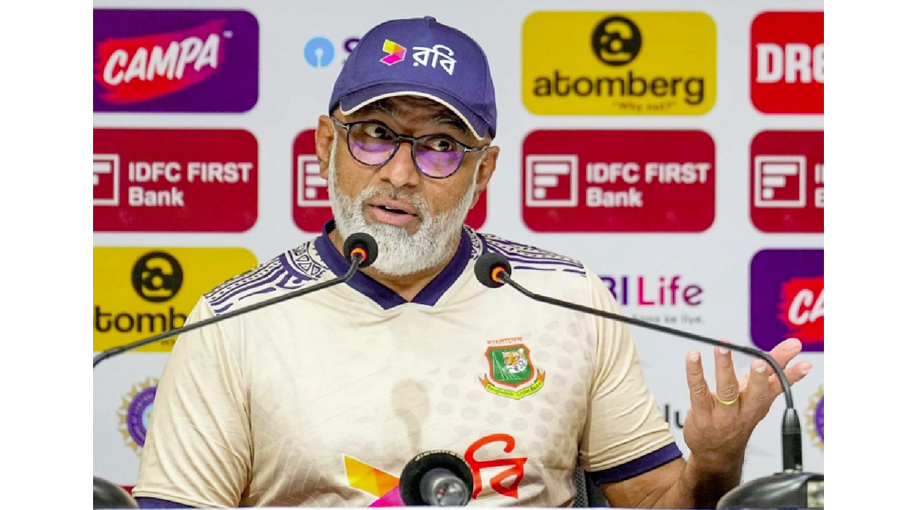Hathuru’s failed redemption

Second chances are a rarity, especially in the professional world where leaving a job on bad terms usually means the door is closed for good. Imagine someone resigning years before their contract ends, without a valid reason, and not even bothering to resign in person. Normally, that person would never be welcomed back, right?
Not so for Chandika Hathurusingha and the forgiving Bangladesh Cricket Board (BCB).
Hathurusingha's first spell as Bangladesh's head coach ended abruptly in 2017 after a disastrous tour of South Africa. Instead of returning to Bangladesh, he flew straight to Australia, emailed his resignation, and soon after, took up the role of head coach for Sri Lanka. Despite this ungraceful exit, the BCB rehired Hathurusingha in January 2023, making him the first coach to have a second term as Bangladesh's head coach.
His departure was indicative of his management style during his initial tenure. Appointed in late 2014, Hathurusingha ruled with an iron fist, known for his strict discipline and tactical acumen, but struggled with managing egos and interpersonal relationships. Hopes were high that a more mature Hathurusingha would better manage the dressing room in his second stint. However, it soon became clear that his rough edges remained.
On Tuesday, BCB president Faruque Ahmed announced Hathurusingha's suspension for exceeding his leave allowance and allegedly 'assaulting' a player during the previous year's ODI World Cup.
Hathurusingha has denied the assault allegation, and the debate is likely to continue. However, it is clear that the Bangladesh camp was far from harmonious during his tenure.
Tamim Iqbal's sudden retirement last year, followed by a quick retraction, his exclusion from the World Cup squad, and the subsequent public feud with Shakib Al Hasan, who succeeded him as captain, all occurred under Hathurusingha's watch.
During his first tenure, Hathurusingha's rigid approach was offset by bold tactics. This time, however, the boldness was missing. The once sharp tactician had become a cautious coach, doing the bare minimum to keep his job.
This cautious approach was evident when he remarked that anything beyond qualifying for the Super Eights in this year's T20 World Cup would be a bonus. True to his word, when an opportunity arose to qualify for the semi-finals by chasing 116 in 12.1 overs against Afghanistan, his team opted for a meaningless win instead. In any leading cricket nation, a coach would likely lose their job for such a lacklustre approach. Fortunately for Hathurusingha, he was employed in Bangladesh. It would be unfair to say Bangladesh performed poorly under Hathurusingha in his second term. The Tigers won and lost five Tests each; won 13 ODIs against 19 losses and three no results; and won 19 T20Is against 15 losses and one no result.
However, Bangladesh's performances in the ODI World Cup, the T20 World Cup, and the recent tour of India, where they lost all five matches, indicated regression and highlighted the gap between the Tigers and the top teams. According to BCB president Faruque Ahmed, it was not the team's performance but Hathurusingha's cavalier attitude that led to his dismissal.




